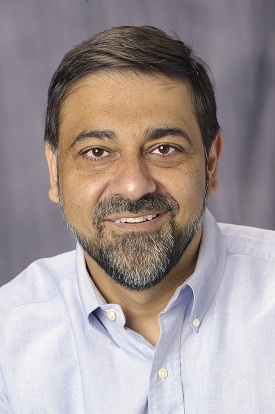
There’s been a lot of talk in recent weeks and months about cybersecurity and America’s vulnerability to online attacks. One of the fears is that ideas and intellectual property belonging to the United States will be lost to another country or group. These fears are justified.
Indeed, as the information security firm Mandiant recently found, China has been waging a systematic assault on our computer networks for years. As the President and Congress work to respond to this threat and keep our country secure from this kind of intellectual theft, it is worth noting that another type of intellectual loss is also now occurring in America.
It is a loss not so much of ideas, but of the individuals who generate them – that is, the scientists, engineers, entrepreneurs and other innovative thinkers whose creative and intellectual contributions over the years have been one of the keys to American competitiveness and economic success. Many of these individuals are foreign-born and U.S.-educated, and they want nothing more than to stay in America and put their talents to work.
Over the years, they have been doing just that. Foreign-born individuals have contributed to more than half of the international patents filed by leading companies, including Qualcomm (72%), Merck & Co. (65%), General Electric (64%), Siemens (63%), and Cisco (60%). In addition, they contributed to 76% of the patents at our top universities — especially in cutting-edge fields like semiconductor device manufacturing (87%), information technology (84%), pulse or digital communications (83%), pharmaceutical drugs or drug compounds (79%), and optics (77%).
Foreign-born individuals have contributed to more than half of the international patents filed by leading companies, including Qualcomm (72%), Merck & Co. (65%), General Electric (64%), Siemens (63%), and Cisco (60%).
Yet as the research of my team at Stanford, Duke, and UC-Berkeley has shown, U.S. immigration policies are chasing this vital source of skills and talent away. Our earlier research had determined that from 1995 to 2005 — the time of the Internet boom — 52% of Silicon Valley’s startups were founded by people born abroad — people like me. When we updated our research recently, we found that this proportion had dropped to 44%. This was historically unprecedented, but not at all surprising.
The fact of the matter is that foreign students graduating from American colleges have difficulty in finding jobs because employers have difficulty in getting H1-B visas. Those graduates who are lucky enough to get a job and a visa and who decide to make the U.S. their permanent home find that it can take years — sometimes more than a decade — to get a green card. If they have ideas for building world-changing technologies and want to start a company, they are usually out of luck, because it is not usually possible for people on H1-B visas to work for the companies they might start.
The families of would-be immigrants are also held hostage to the visa-holder’s immigration status. The spouses of H1-B workers are not allowed to work, and, depending on the state in which they live, they may not even be able to get a driver’s license or open a bank account. They are forced to live as second-class citizens. Not surprisingly, many are getting frustrated and returning home. Some are also taking their talents elsewhere, lured away by foreign governments who view these workers not only as the path to innovation and prosperity, but as strategic weapons in the knowledge race.
Countries including China, Australia, Chile, Singapore, and Canada, are offering stipends, labor subsidies for employees, expedited visa processes, and other inducements to bring in foreign entrepreneurs. Chile offers entrepreneurs $40,000 just to come and live there for six months. China sometimes offers hundreds of thousands of dollars in subsidies and incentives.
Countries including China, Australia, Chile, Singapore, and Canada, are offering stipends, labor subsidies for employees, expedited visa processes, and other inducements to bring in foreign entrepreneurs.
In some respects, these subsidies and incentives are as great of a threat to our future economic competiveness as the cyber attacks that are launched our way everyday. For that reason, the United States must stop this brain drain and do all we can to keep and bring more engineers and scientists here.
Make no mistake — these individuals expand the economy and create jobs for Americans. In my book The Immigrant Exodus, I prescribed seven fixes to stem the tide and to attract the world’s best and brightest to America, including:
- Increasing the numbers of green cards available to H-1B holders;
- Allowing spouses of H-1B visa holders to work;
- Targeting immigration based on required skills;
- Allowing H-1B Holders to change jobs without requiring sponsorship renewal;
- Extending the term of OPT for foreign students from one to four years;
- Instituting the Startup Visa; and,
- Removing the country caps on green-card applications.
As I concluded in my book, we need to do all this because a vibrant United States that opens its doors to skilled immigrants will provide a greater benefit to the rest of the world than a closed United States because the rules by which the U.S. practices the game of economic development, job formation and intellectual capital formation grow the global economic pie.
And the ethos that drives America’s entrepreneurs and inventors, and has driven U.S. policy until very recently, is critically important for the continued development of the global economy. These entrepreneurs will not only better the U.S., but help better humanity and solve some of the grand challenges facing the world.
Vivek Wadhwa is Vice President of Academics and Innovation at Singularity University, a Fellow for Corporate Governance at Stanford University, and the Director of Research at the Center for Entrepreneurship and Research Commercialization at Duke University.




